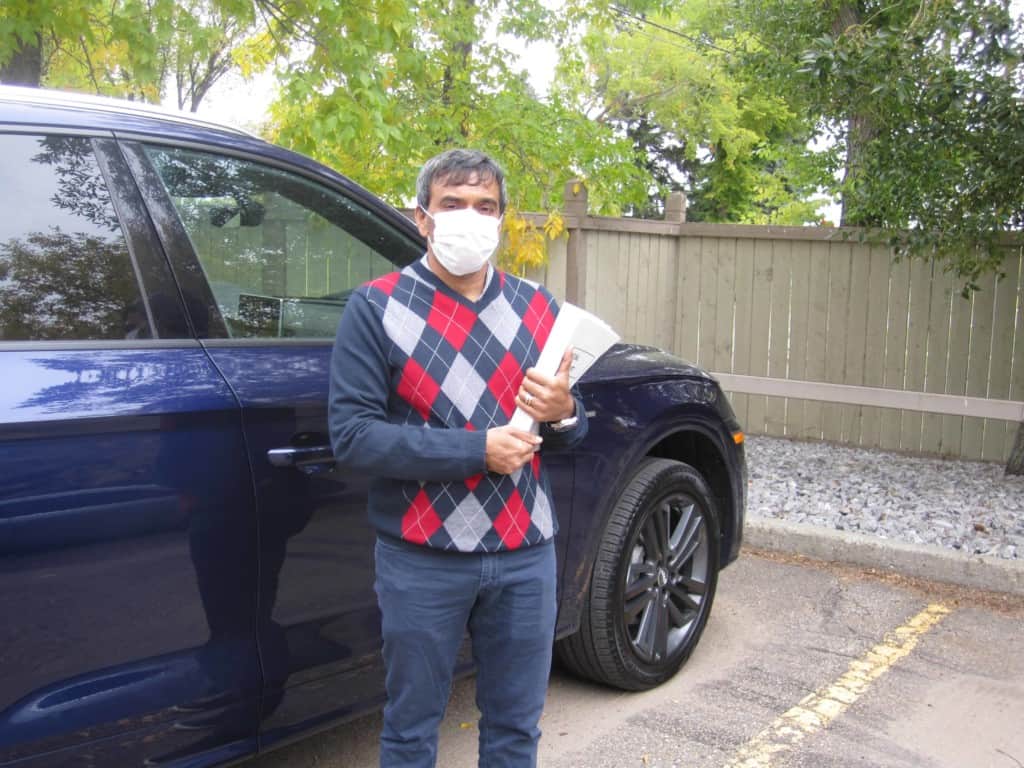Teachers should take care of themselves first
Some mental health tips for teachers to get through the year
When schools reopened this fall, it was not only parents and students, but also teachers who were concerned over the transition. With the reality of returning to work in an uncertain environment, plus revised class structures and schedules, it’s understandable that there might be apprehension and stress.
“The unfortunate fact is that teachers are not living in a vacuum,” says Franki Harrogate, a registered provisional psychologist with her own private practice. “All of us are living through a pandemic, climate change, obvious economic inequality, and increasing financial precarity, particularly with disruptions to income from the lockdown.”
Teachers have a caring role in the lives of students both as educators and mentors. “As such, they have a particular niche when it comes to stress levels,” Harrogate points out. “Schools are basically petri dishes. Teachers have an increased risk of contracting COVID-19.”
In school, younger children can pose a greater challenge as they may not really understand the gravity of the pandemic. Once they see their friends, excitement takes over and they could tend to forget about the need to socially distance and avoid touching objects unnecessarily.
Harrogate explains many older public schools have decades-old HVAC systems. The combination of the lack of either provincially-mandated mandatory masks in the classroom, or the ability to physically distance properly, together with collapsed class sizes and the possibility of having no educational aides or teachers assistants, teachers face higher stress levels.

To maintain a healthy relationship with their students and make classrooms an effective learning place, teachers need to take care of themselves first. “Ever travel on an airplane?” Harrogate asks. “The reason you’re told to wear your mask first is so that you have the capacity to help someone else.”
Harrogate says it’s essential to connect with loved ones. “Humans are social beings and thrive when we feel that we are part of a community. Feeling supported is key; burnout seems to be a case of becoming seriously stressed out but not being supported or receiving support from peers and/or family.”
With all those factors, working in this kind of environment can understandably be stressful and create or exacerbate anxiety. Using coping mechanisms will help not only teachers, but ultimately students as well.
One such coping mechanism is self-care.
“Self-care includes taking medication, eating regularly, getting enough sleep, prioritizing our boundaries, and taking time to recharge. It’s not optional, it is essential,” Harrogate stresses.
As well, seek out mental health aid when needed, although where to go and what that aid may look like will vary from person to person.
“This is really dependent on individual context, honestly,” says Harrogate. “Therapists and support programs vary greatly in specializations, cultural proficiency, and accessibility. Finding a program or practitioner who is a good fit is essential.”
And it’s important to have perspective on the situation. Teachers are often considered role models for future citizens, never mind adding in this year’s extra pressures. So with that in mind, compassion for oneself is key. No one is going to be perfect in this situation.
“It is okay to not be okay,” Harrogate assures. “Children learn from their elders and teachers. Pretending like nothing is wrong and that everything is fine will only teach children that they can’t be honest about their feelings.”
RESOURCES
The Family Centre
familycentre.org or 780.423.2831
Jewish Family Services
jfse.org or 780.454.1194
211
Featured Image: Teachers are facing a lot of extra stress this year. | Steve Riot from Pixabay







